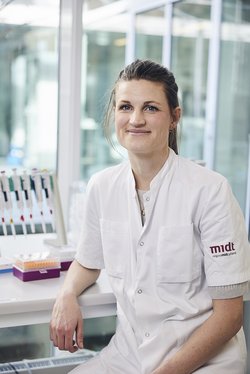Mette Viuff

Chromosomal abnormalities affect the entire genome
One of the most common chromosomal disorders is Turner Syndrome, where one of the X chromosomes is missing or partially missing. According to Doctor, PhD Mette Viuff, studying the underlying genetic mechanisms may improve our ability to prevent diseases associated with Turner Syndrome.
“Very little research has looked into how a missing X chromosome actually affects the body and leads to illness. We wanted to change that. We studied fatty tissue, muscle tissue and blood from women with Turner Syndrome, and we were surprised to learn that the cause of disease is not simply the missing genes on the X chromosome,” she says.
The missing X chromosome also appears to affect the remaining chromosomes and the way the genes are read. This is a ground-breaking discovery, which attracted international attention.
“The general view used to be that the condition is the result of the missing gene. We have shown that it is not that simple. Various mechanisms come into play here,” Mette Viuff concludes.
As part of her PhD project, Mette Viuff conducted epidemiological studies, which also led to important findings. Patients with Turner Syndrome are typically treated with oestrogen for the rest of their lives, even though this is known to increase the risk of breast cancer and blood clots. Mette Viuff has shown that in Turner patients, the hormone only has a beneficial effect.
Today, she works as an obstetrician in Aarhus and contributes to a new research project on Turner Syndrome in her spare time.